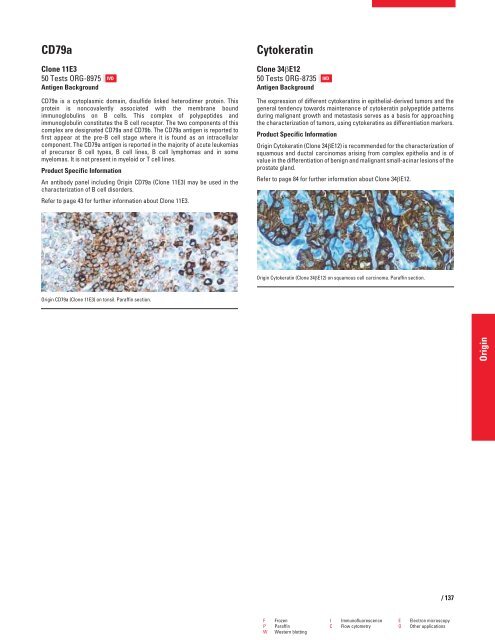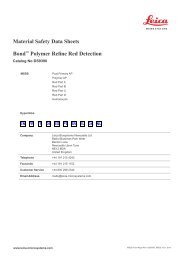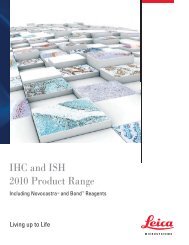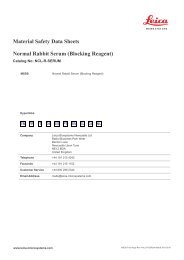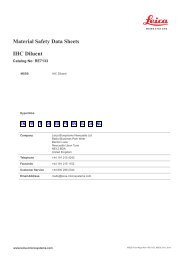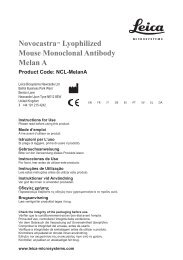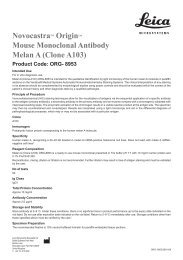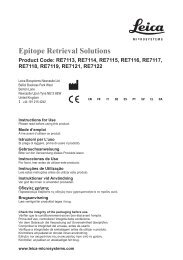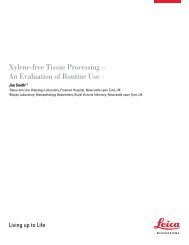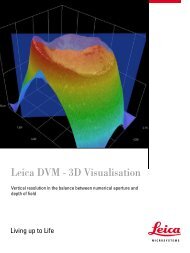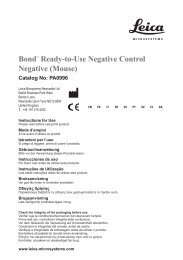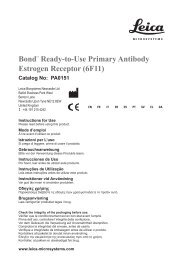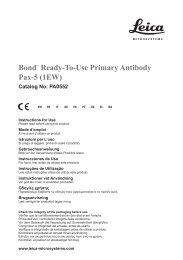QF0159 Marketing Release Record
QF0159 Marketing Release Record
QF0159 Marketing Release Record
You also want an ePaper? Increase the reach of your titles
YUMPU automatically turns print PDFs into web optimized ePapers that Google loves.
CD79a<br />
Clone 11E3<br />
50 Tests ORG-8975<br />
Antigen Background<br />
CD79a is a cytoplasmic domain, disulfide linked heterodimer protein. This<br />
protein is noncovalently associated with the membrane bound<br />
immunoglobulins on B cells. This complex of polypeptides and<br />
immunoglobulin constitutes the B cell receptor. The two components of this<br />
complex are designated CD79a and CD79b. The CD79a antigen is reported to<br />
first appear at the pre-B cell stage where it is found as an intracellular<br />
component. The CD79a antigen is reported in the majority of acute leukemias<br />
of precursor B cell types, B cell lines, B cell lymphomas and in some<br />
myelomas. It is not present in myeloid or T cell lines.<br />
Product Specific Information<br />
An antibody panel including Origin CD79a (Clone 11E3) may be used in the<br />
characterization of B cell disorders.<br />
Refer to page 43 for further information about Clone 11E3.<br />
Origin CD79a (Clone 11E3) on tonsil. Paraffin section.<br />
Cytokeratin<br />
Clone 34�E12<br />
50 Tests ORG-8735<br />
Antigen Background<br />
IVD IVD<br />
The expression of different cytokeratins in epithelial-derived tumors and the<br />
general tendency towards maintenance of cytokeratin polypeptide patterns<br />
during malignant growth and metastasis serves as a basis for approaching<br />
the characterization of tumors, using cytokeratins as differentiation markers.<br />
Product Specific Information<br />
Origin Cytokeratin (Clone 34�E12) is recommended for the characterization of<br />
squamous and ductal carcinomas arising from complex epithelia and is of<br />
value in the differentiation of benign and malignant small-acinar lesions of the<br />
prostate gland.<br />
Refer to page 84 for further information about Clone 34�E12.<br />
Origin Cytokeratin (Clone 34�E12) on squamous cell carcinoma. Paraffin section.<br />
F Frozen I Immunofluorescence E Electron microscopy<br />
P Paraffin C Flow cytometry O Other applications<br />
W Western blotting<br />
/ 137<br />
Origin


